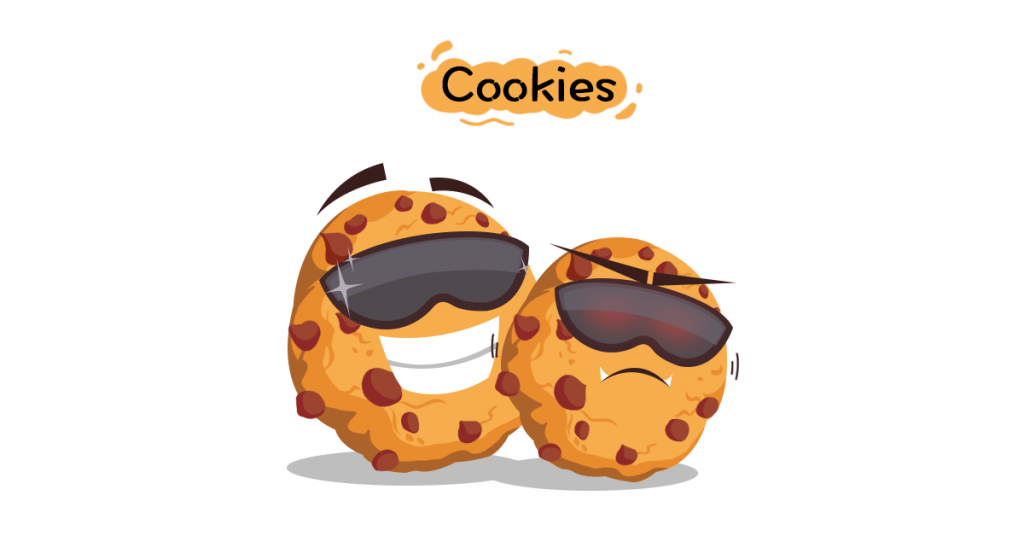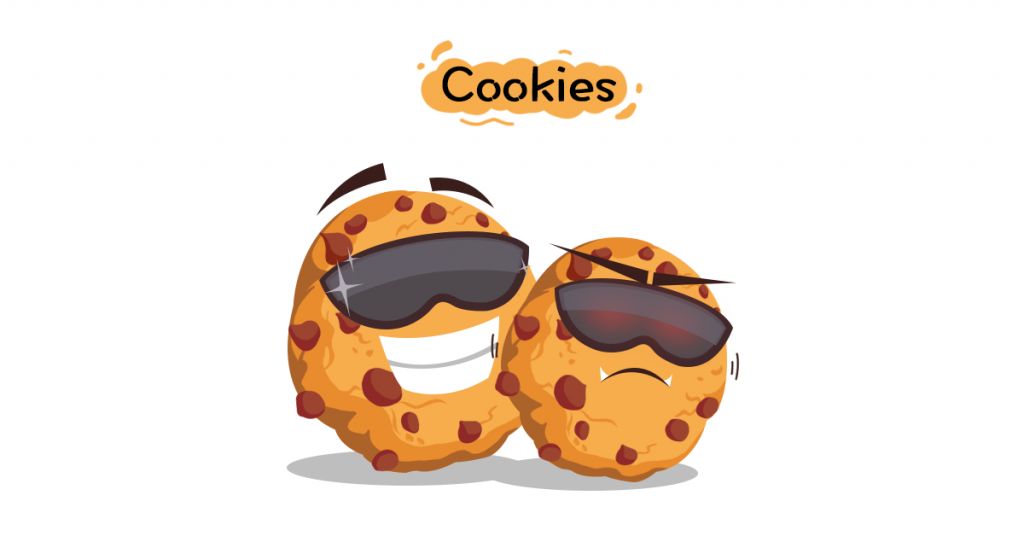A cookie may be defined as a small file stored on a computer, capable of holding a moderate amount of data related to a particular website or user. As a result of the presence of cookies, the server is able to deliver pages custom-designed for specific users.

Technically speaking, cookies are effectively small lookup tables comprising of pairs of values. Creating cookies is a very convenient alternative to carry information across sessions on a website or related websites without having to store massive amounts of data in the server. If cookies are disabled by the user, the write operation will not work and the subsequent sites relying on cookies will prompt the user to enter the information once again or take a default action. Computer cookies can be divided into three categories viz. session, persistent, and third-party cookies.
• Session Cookies:
These are temporary cookies capable of memorizing the online activities of the users. Online shopping is one particular example where sessions cookies are extremely useful. While shopping online, we can store our favorite items in the cart and check-out at a later stage. This is possible because all our activities within the platform are tracked by session cookies. These cookies also remember our actions to help us maneuver through the internet.
• Persistent Cookies:
Also known as first-party cookies, the function of these cookies is to track the online preferences of the users. While visiting a website, if the visitor chooses to personalize the site based on his or her preferences, those preferences are remembered by the persistent cookies and implemented during their next visit to the website.
• Third-party Cookies:
Third-party or tracking cookies are used to collect information based on the online behavior of a user. Whenever we visit a website, various types of data are collected by the third-party cookies. Later on, this information is sold or passed on to the advertisers by the websites creating the cookies.
How to Clean Cookies?
Most of the modern-day web browsers allow users to delete cookies without any issues whatsoever. Please follow the steps mentioned below, depending on the browser you are using.
• Google Chrome: Click the menu—select ‘more tools’— and click ‘clear browsing data.’
• Firefox: Select the Firefox menu—go to ‘Options’— select ‘Privacy & Security’—scroll to ‘Cookies and Site Data’— select the ‘Clear Data’ option.
• Safari: Go to Safari menu— select ‘Preferences’—Click on ‘Privacy’—select the option to ‘Block all cookies.’
Though it is possible to turn off cookies with all web browsers, please note that turning them off altogether may not be the right approach because it will lead to improper functioning of certain websites. The best approach from a user’s perspective is to block only the third party cookies. This will not affect your user experience because the functional cookies required by the websites will still be present, and these cookies are typically harmless in nature.
How Long Does a Cookie Last?
The lifespan of the cookies is generally set while creating them. The cookies are destroyed by default as soon as the user closes the current browser window. Session cookies only exist as long as the browser is open. However, persistent cookies can survive even after the closure of the browser or the app. When you re-open your app or browser, these cookies are used again to recognize your computer.
Do Cookies Cause Any Harm?
Cookies themselves aren’t capable of causing any harm because the data contained in them can’t be changed. Also, cookies are not capable of infecting our computers with viruses or any other types of malware. However, some cyber attacks can directly access the browsing sessions of the users by hijacking cookies. Therefore, the biggest threat from cookies comes in the form of their individual browsing history tracking. Ad serving is also a concern for internet users for sure.
As we have already discussed, there are primarily two types of cookies based on their functionality. The first kind helps different websites function optimally and the other types are used for ad tracking and monetization. There is no doubt that the website-enhancing features of cookies will continue to be used in the days to come. However, the privacy threats caused by the cookies must be addressed adequately.
You May Also Like:
- How to Tell if Someone is Spying on My Phone and How to Stop That
- Ask Your Employees These Questions to Easily Test Their Cybersecurity Awareness
- What’s Computer Hacking and How to Prevent It
- What is Ransomware? Everything You Should Know About Top 1 Possible Cyberattack in 2021
- Affected by Facebook Leak? How to Stay More Private on Social Media
